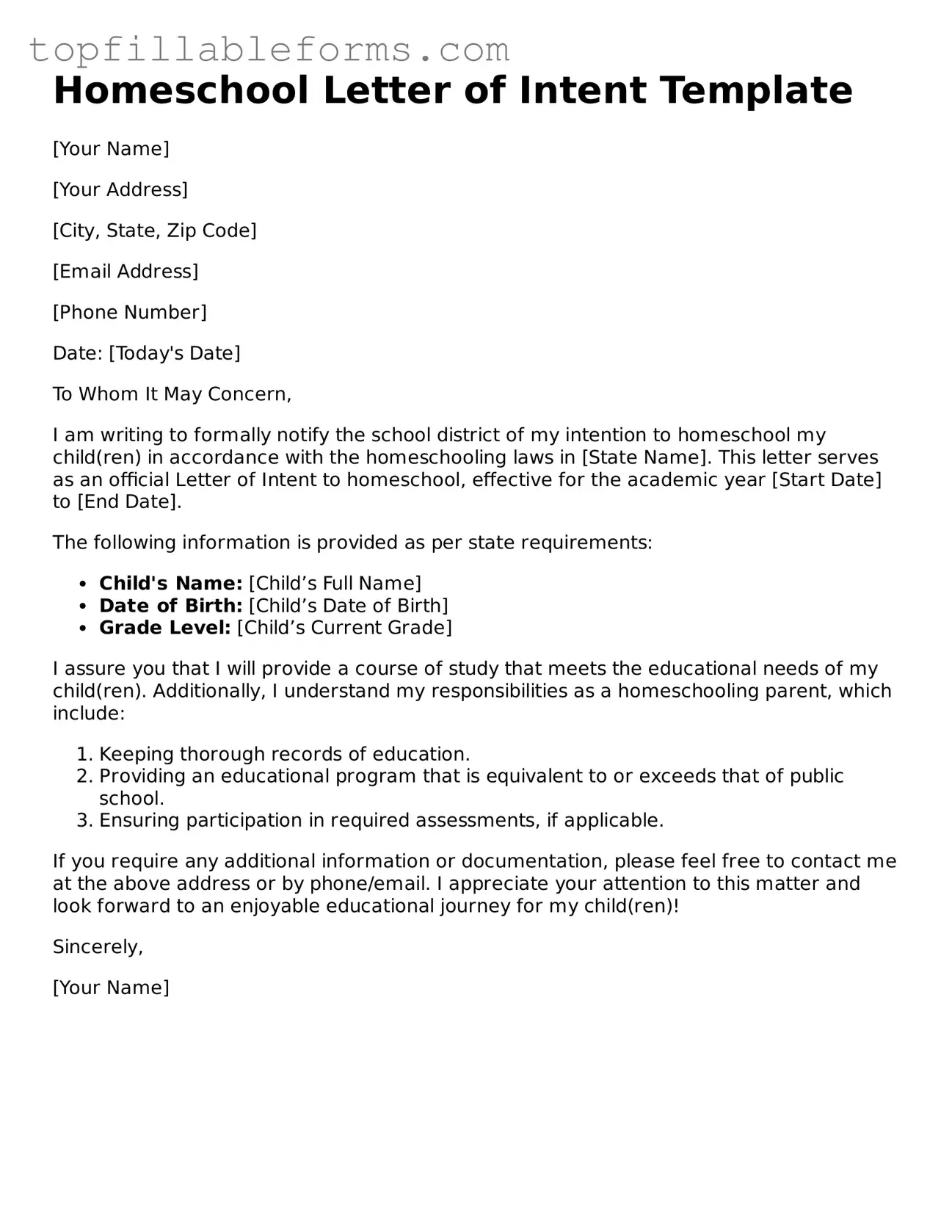Free Homeschool Letter of Intent Form
The Homeschool Letter of Intent is a formal document that parents submit to their local school district to notify them of their decision to homeschool their children. This letter serves as an important first step in the homeschooling process, ensuring compliance with state regulations. Understanding its significance can help families navigate their educational journey with confidence.
Open Homeschool Letter of Intent Editor Here

Free Homeschool Letter of Intent Form
Open Homeschool Letter of Intent Editor Here
Finish the form now and be done
Finish your Homeschool Letter of Intent online by editing, saving, and downloading fast.
Open Homeschool Letter of Intent Editor Here
or
▼ PDF File
